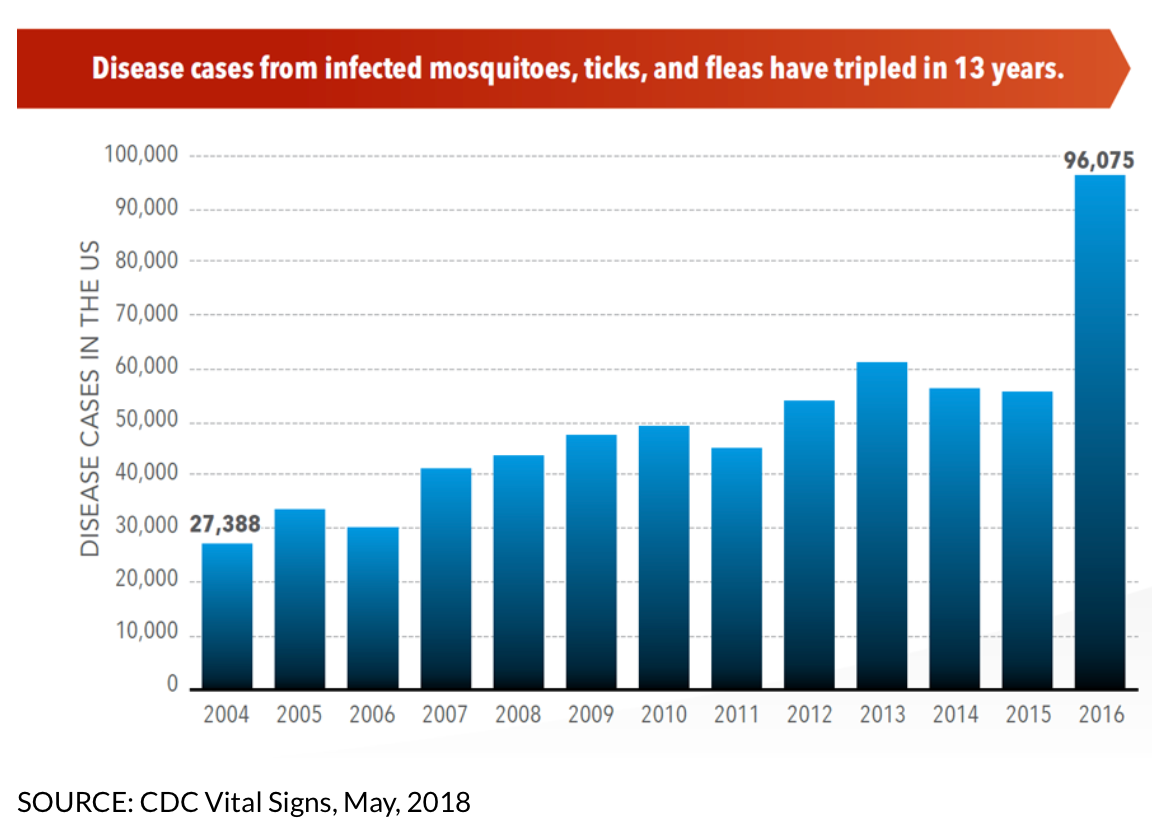US travel warning: 250% rise in diseases from mosquitoes, fleas and ticks in 13 years, says report
‘Malaria and yellow fever are no longer transmitted in the United States but have the potential to be reintroduced,’ says official report

Your support helps us to tell the story
From reproductive rights to climate change to Big Tech, The Independent is on the ground when the story is developing. Whether it's investigating the financials of Elon Musk's pro-Trump PAC or producing our latest documentary, 'The A Word', which shines a light on the American women fighting for reproductive rights, we know how important it is to parse out the facts from the messaging.
At such a critical moment in US history, we need reporters on the ground. Your donation allows us to keep sending journalists to speak to both sides of the story.
The Independent is trusted by Americans across the entire political spectrum. And unlike many other quality news outlets, we choose not to lock Americans out of our reporting and analysis with paywalls. We believe quality journalism should be available to everyone, paid for by those who can afford it.
Your support makes all the difference.British visitors to the US face an increased range of health hazards from mosquitoes, fleas and ticks, with a 250 per cent increase in diseases in 13 years.
A new report from the Centers for Disease Control (CDC) in Atlanta warns of “a rising threat from emerging vector-borne diseases”. The team of researchers, led by Dr Ronald Rosenberg, studied more than 640,000 cases between 2004 and 2016. They concluded: “Mosquito-borne disease epidemics happen more frequently.”
Locally transmitted cases of dengue fever have been reported in Florida, Hawaii and Texas. Symptoms include high fever, muscle and joint pains, headache and nausea. “The number of reported cases of dengue in UK travellers has been increasing,” according to the NHS Travel Health Pro service.
Florida and Texas have also reported outbreaks of Zika, a mosquito-borne virus whose symptoms are similar to dengue fever, including headaches and aching joints. While the disease is rarely life-threatening, if pregnant women contract the virus it can be passed to the foetus and cause microcephaly — where the baby’s brain is not fully developed.
Zika is spread by Aedes aegypti mosquitoes. The reports say the range of these insects has been expanding, and might now be present in up to 38 US states.
Chikungunya, described by the NHS as “a major global health problem” has also been spread locally by mosquitoes in Florida and Texas. It is rarely fatal but causes “fever, severe joint and muscle pains, headaches and skin rash”. There is no vaccine.
The CDC report, published in the Morbidity and Mortality Weekly Report, warns: “Malaria and yellow fever are no longer transmitted in the United States but have the potential to be reintroduced.“

During the 13-year spell, say the researchers, nine new germs spread by bites from infected mosquitoes and ticks were discovered or introduced in the US. In addition, “reported cases of tick-borne disease doubled”.
Ticks can cause Lyme disease, which causes fever, chills and headaches. The World Health Organization warns victims of the disease: “Arthritis may develop up to two years after onset”.
The CDC researchers have called for “major national improvement of surveillance, diagnostics, reporting, and vector control, as well as new tools, including vaccines”.
The NHS Travel Health Pro service provides comprehensive advice on avoiding bites.
“Travellers to areas with a risk of dengue or chikungunya infection should cover up during the daytime if possible.
“Air conditioning reduces the likelihood of mosquito bites as a result of substantial reduction in night time temperature. Ceiling fans reduce mosquito nuisance.
“In tick-infested areas, trousers should be tucked into socks to prevent ticks from crawling up the legs.
But the NHS warns of nine “measures that cannot be recommended for repelling insects”, including garlic, Marmite and tea tree oil.
Join our commenting forum
Join thought-provoking conversations, follow other Independent readers and see their replies
Comments